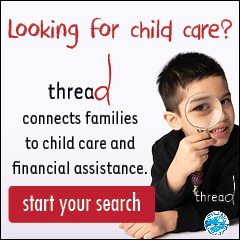
After-school care impacts thousands of parents. It can dictate work schedules and employment options. Some parents wait in line for hours to secure after-school care. Others have to sign up months in advance and many face endless waiting lists.
Lack of availability is not just a problem in Alaska. Nationally, more than 11 million kids are on their own after school, according to a survey by the Afterschool Alliance, which is a nonprofit program that advocates for after-school programs. In Alaska, more than 31,000 school-age children are responsible for taking care of themselves after school.
Several options exist for after school care in Alaska. Some facilities provide gymnastics instruction. Others teach taekwondo. A few, such as Campfire, provide care in schools. The problem is, there aren’t enough slots.
Morgan Macconaugha-Snyder found out about the tight availability when her daughter was ready for kindergarten. She started looking for after-school care the summer before school started thinking it would be plenty of time. She squeaked in by getting the last spot, a move that was essential to her livelihood at the time.
“The necessity was there to work full-time. I was not able to change that. I was a single mom,” she says.
Macconaugha-Snyder was fortunate to secure a spot. A random check of facilities in February 2015 showed Campfire’s after-school program in Anchorage had 300 on its waiting list. The licensed care facility at an Anchorage Boys and Girls Club had a waiting list of 17. In Kenai, the Kids’ Class day care center was full although the owner was looking into increasing capacity.
There are a variety of reasons for the shortages. Experts say lack of capacity to grow programs, space restrictions and operation costs are some challenges. Additionally, there is often a high turnover with staff because working with young people requires specific skills, according to Thomas Azzarella, director of the Alaska Afterschool Network.
“You need to learn how to engage and play with youth in a supportive way,” says Azzarella. “Staffing is definitely a challenge for many programs.”
open campus
The average family in Alaska spends $146 per week on after-school care, according to the Afterschool Alliance. Some families can’t afford the cost. Programs such as Campfire offer scholarships, but demand often outweighs availability. Open campus programs offer an alternative to those struggling with space or cost restrictions.
Boys & Girls Club of Alaska is one of the larger open campus programs serving several communities and thousands of youth across the state. Their programs allow school-age youth, starting at age 7, to stay after school until 6 pm. During those hours, clubs provide a variety of activities from music and games to homework help.
Admission is either free or is offered at a low cost. Children and teens are never turned away because regulations for an open campus are different from those of licensed care. Still, the option may not be for everyone. An open campus means that kids can come and go and not all parents are comfortable with that scenario.
“The majority of our members are in the 10- to 12-year-old age range,” said Jennifer Brown, director of development and communications for Boys & Girls Club of Alaska. “Our program works out perfectly for them because they are starting to be a little more independent and they can choose which activities they want to participate in whether it is an art class, gym, games room, homework help/tutoring or outdoor activity.”
solutions
After-school care not only helps working parents, but is also effective in leading to higher paying jobs and reducing crime, according to Azzarella. The network aims to increase academic achievement, reduce high-risk behavior and increase high school graduation.
“After-school (care) matters,” he says. “It has huge impacts on the well-being of our kids. It not only provides a safe, nurturing place for that child to be but it builds the 21st century skills they need.”
The Alaska Aftershool Network, supported by funding secured by the Alaska Children’s Trust, is working toward building a statewide system to connect, support and strengthen partners. The network has already experienced success by connecting an under enrolled facility to a program with a waiting list. Azzarella says he plans to continue the positive momentum by raising the volume of noise in the community about after-school care.
“It’s us being out there as an advocate,” he says. “It’s us being out there and letting folks know these programs are important in Alaska.”
Resources for After-school Care
Anchorage
Bayshore Early Learning Center
Limited Openings for Kindergarten and First Grade
Phone: 522-4907
www.bayshorekids.com
Campfire Alaska – (907) 279-3551
www.campfireak.org
Statewide
thread:
Anchorage – (800) 278-3723
Wasilla – (907) 373-5024
Juneau – (888) 785-1235
Kenai – (800) 278-3723
Fairbanks – (866) 878-2273 (Referral) or (855) 479-2212 (Child care assistance)
www.threadalaska.org
For additional resources, visit our After-School Activities Guide here.










